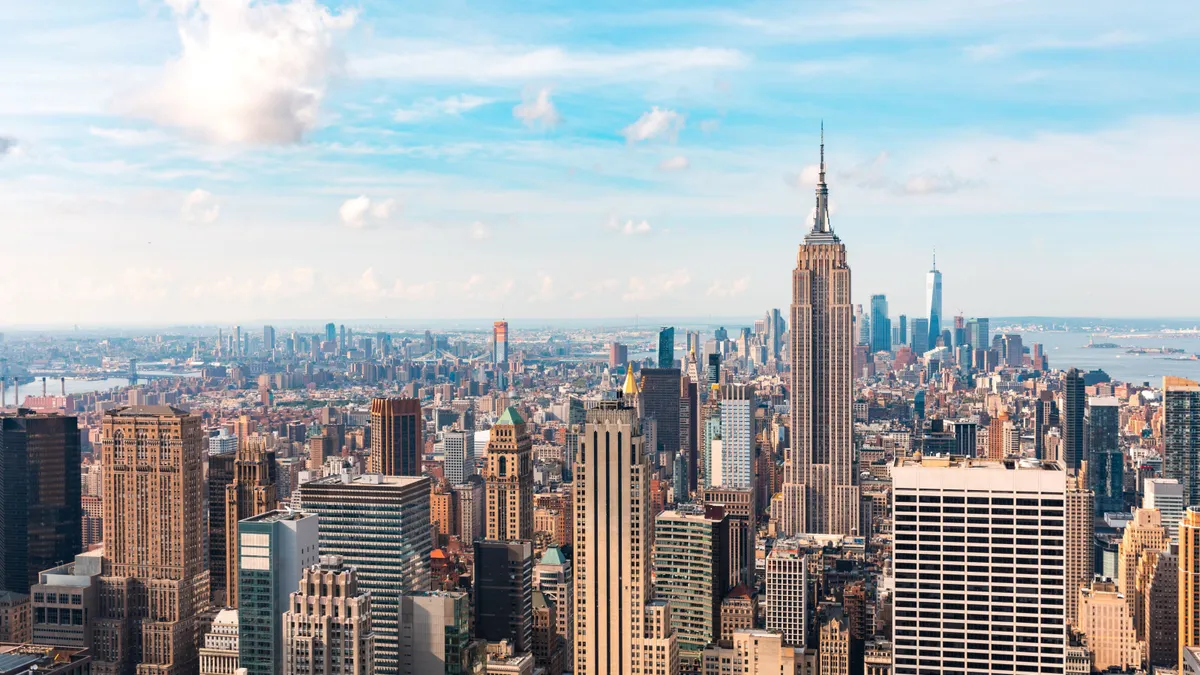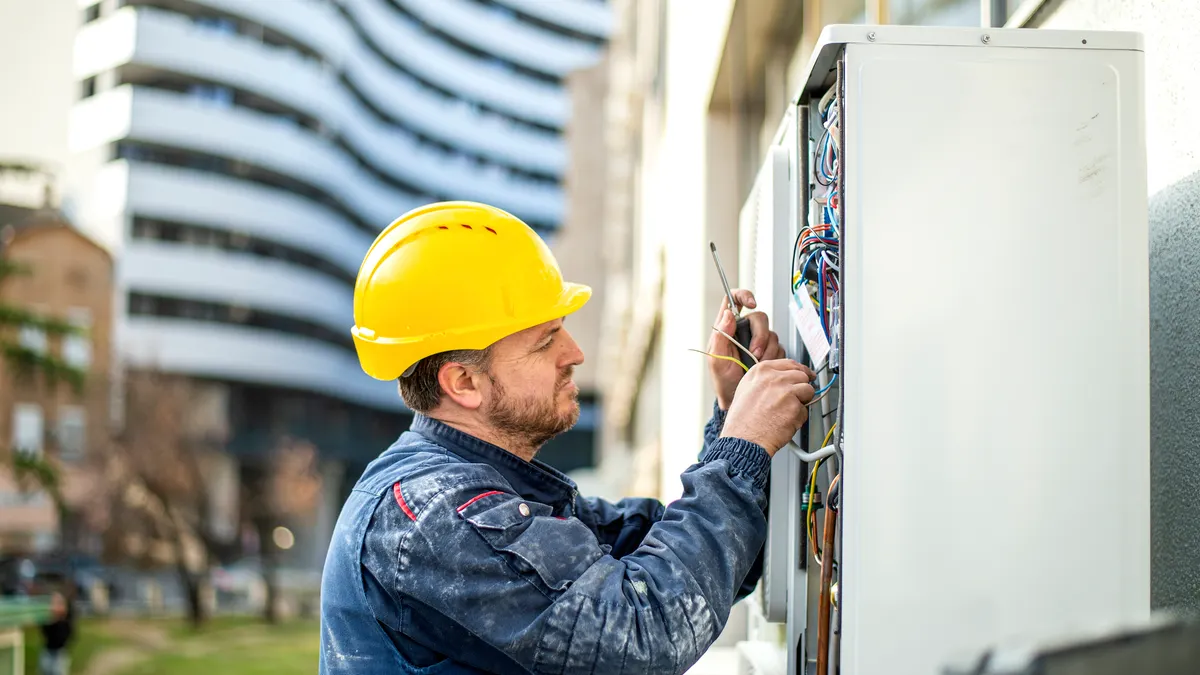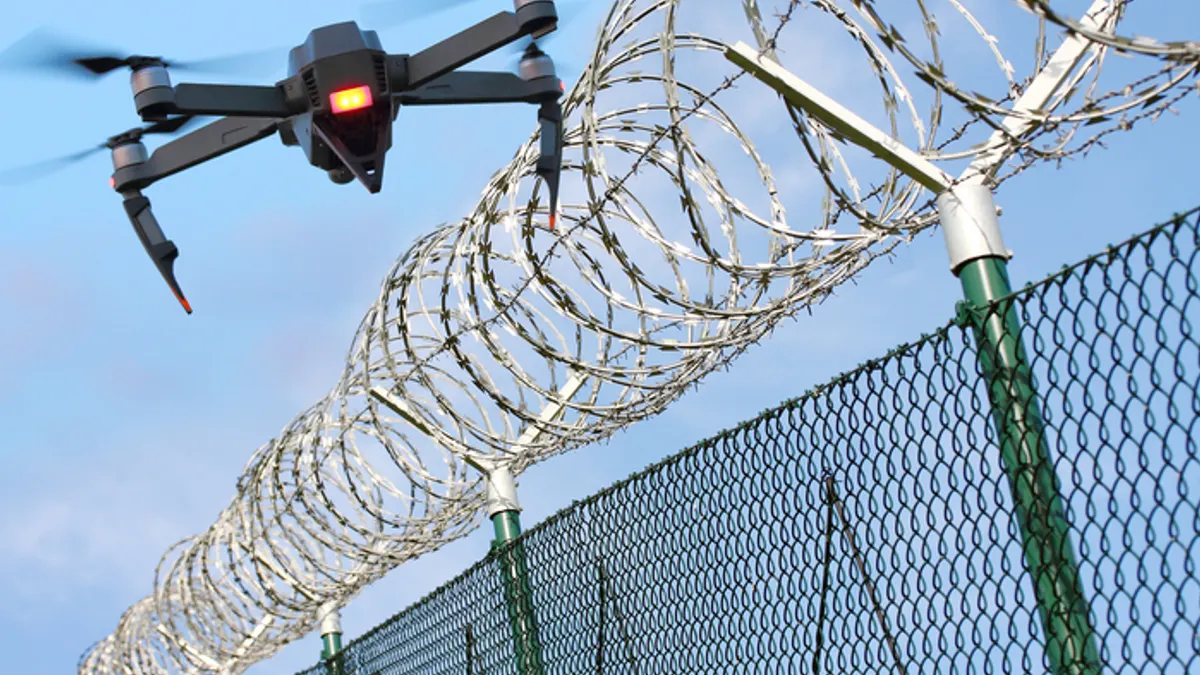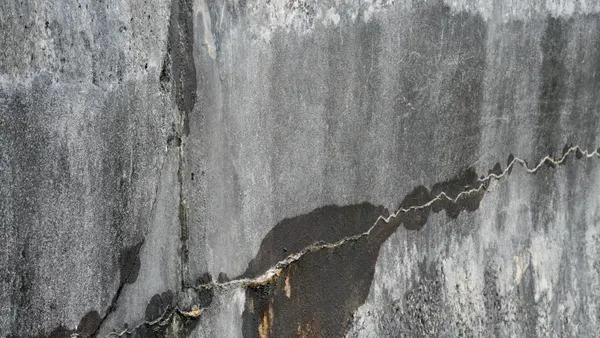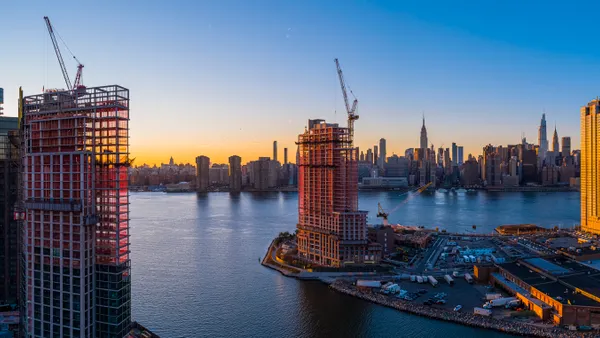The original LL97 reporting deadline of May 1, when covered-building owners had to submit their 2024 annual energy and water use to the New York City Department of Buildings’ Sustainability Department, has been extended to June 30, the department said in an email.
Local Law 97, New York City’s building performance standard that sets carbon emission limits and a trajectory for city-wide net-zero emissions by 2050, began enforcement this year after entering its first compliance period in 2024. A full list of buildings required to submit reports is available here.
This extension was established under RCNY 103-14, promulgated in January 2024, providing a 60-day grace period, DOB said. As part of those rules, the city also established allowances for owners to request a 120-day extension, making the final deadline August 29.
“Although the city did a lot of work in order to make it very simple, there's still a lot of confusion in the industry in general on what exactly they need to do … and I think that that's the main reason they postponed it,” Yotam Cohen, CEO and co-founder of Daisy, a property management company in New York City, told Facilities Dive. Daisy provides tech-driven condo and co-op property management in New York City; it also released a tool, Carbon Curve, that can be used to estimate compliance with Local Law 97.
The city has also extended its benchmarking requirements, set forth in Local Law 84, to align with Local Law 97 for consistency, DOB said in its email. That deadline was also May 1 but previously did not include a grace period or an option for extension.
“There is another ability to file for another extension until August, which I think is just giving more leeway for everyone to comply. It’s been three years, so it’s not like it’s something new out of the blue,” Cohen said. “But getting the [condo] boards and everyone to understand that they need to act before the city has some fines, that’s the reasoning.”
The law requires buildings over 25,000 square feet to slash 40% of their emissions by 2030 and achieve an 80% reduction by 2040. Buildings that cannot meet the 2024 emissions caps can reduce noncompliance penalties for up to two years if they demonstrate a “good-faith” commitment to abide by the law.
The law continues to see opposition from landlords, especially those in older buildings, that are having difficulty either meeting emissions standards or compliance requirements.
Local Law 97 recently earned a decisive ruling in its favor, however, with a panel of state Court of Appeals judges dismissing a lawsuit that aimed to overturn the climate law. The lawsuit, led by two Queens cooperatives, argued that Local Law 97 was preempted by New York state’s more comprehensive climate law, the Climate Leadership Community Protection Act.
“It’s disappointing,” Warren Schreiber, president of the Bay Terrace Cooperative Section I in eastern Queens and co-president of the Presidents Co-op and Condo Council, told Crain’s. “I don't believe that we have any other legal options. I disagree, but I respect the court.”
New York City building owners looking for a reporting or benchmarking extension to August 29 must submit an extension request by June 30 to the NYC Department of Buildings. Additional information on extension requirements can be found here.
The NYC Department of Buildings and New York City accelerator maintain a list of financial incentives, tax credits and financing options that can help building owners and managers improve the energy efficiency of their buildings.
“In some cases, you actually don’t need to pay so much out of pocket from the building. You can actually tap into those incentives in order to basically put sensors and other things that will enable you to save costs,” Cohen said.



